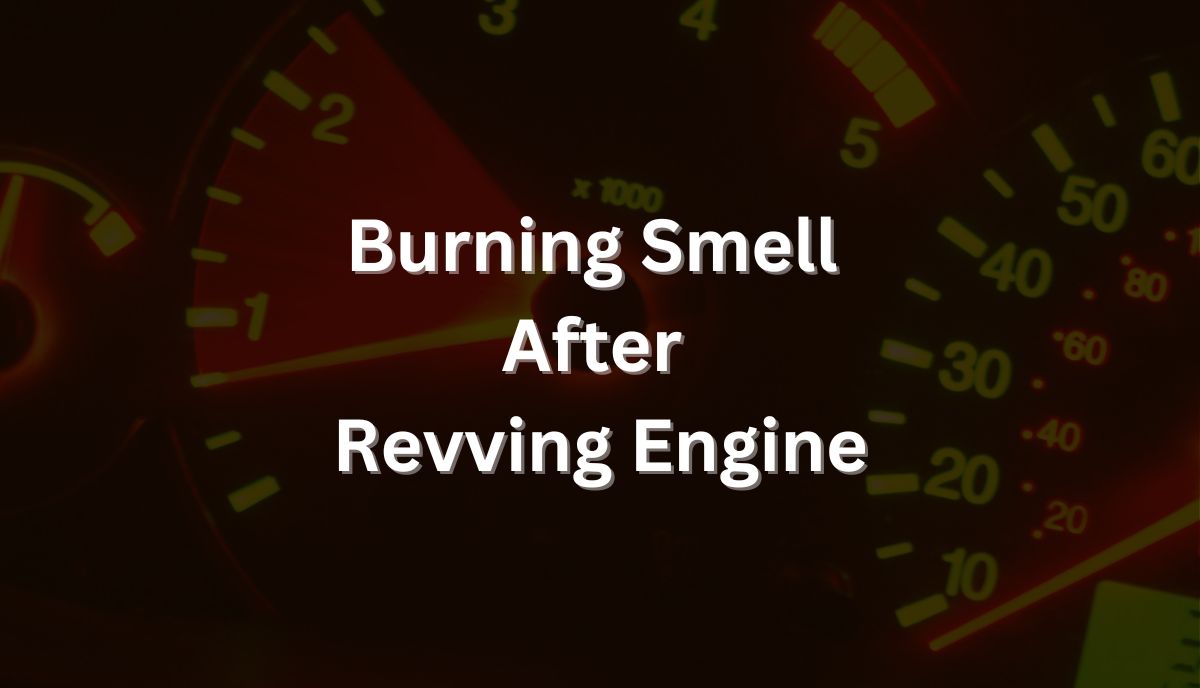A burning smell after revving the engine is due to overheating, worn-out components, oil leaks, electrical faults, and dirty or clogged catalytic converters,
You shouldn’t only blame strange smells on revving because they can originate from any number of sources. However, you can’t rule it out either. You have three variables to consider:
1). Revving Is Normal
You rev the vehicle by stepping on the accelerator while keeping the gear in ‘Neutral’ or ‘Park.’ This elevates the RPM without moving the car forward. Is that a bad thing? Not necessarily.
Manufacturers account for the strain you exert when you rev the engine. Some consumers worry that allowing the tachometer to touch the red line can cause permanent damage, but that is a myth.
Cars are designed to handle the strain an engine encounters when you push the RPM to the red line. Naturally, extended and frequent revving is dangerous. However, under typical conditions, occasional revving is unlikely to cause overheating or other defects drivers associate with a burning smell in a car.
2). Friction Can Harm The Engine
Friction is a tangible concern in older vehicles. Usually, drivers warm their engines for several seconds or minutes by idling the car in the morning before driving away. This allows temperatures to increase to optimal levels. It also permits the oil to flow, lubricating the engine’s moving parts.
Revving a cold car may increase the engine’s wear and tear because the practice strains the component before the oil can flow. In that regard, you can’t rule out overheating and burning smells as potential side effects. However, modern cars are sophisticated enough to lubricate and warm the engine within seconds.
3). Revving Destroys The Environment
Like idling, revving typically burns more fuel. It also ejects more toxic waste into the environment. Are you sure you detect a burning smell? Could the scent originate from excess fumes spewing out of the exhaust?
All in all, don’t be so quick to blame burning smells on revving, although the practice is still risky. People associate revving with the following consequences:
- Revving accelerates the engine’s wear and tear, which may explain the burning smell.
- The friction will harm the cylinder liners if the piston rings expand because of excess heat.
- You may starve the oil system, leaving an empty sump.
- Check for warped connecting rods and bent valves.
- The crankshaft may warp.
Keep in mind that modern cars have rev limiters that prevent careless drivers from revving excessively to the point of damaging the engine. Therefore, the side effects mentioned above are not common.
How Can I Identify The Source Of A Burning Smell After Engine Revving?
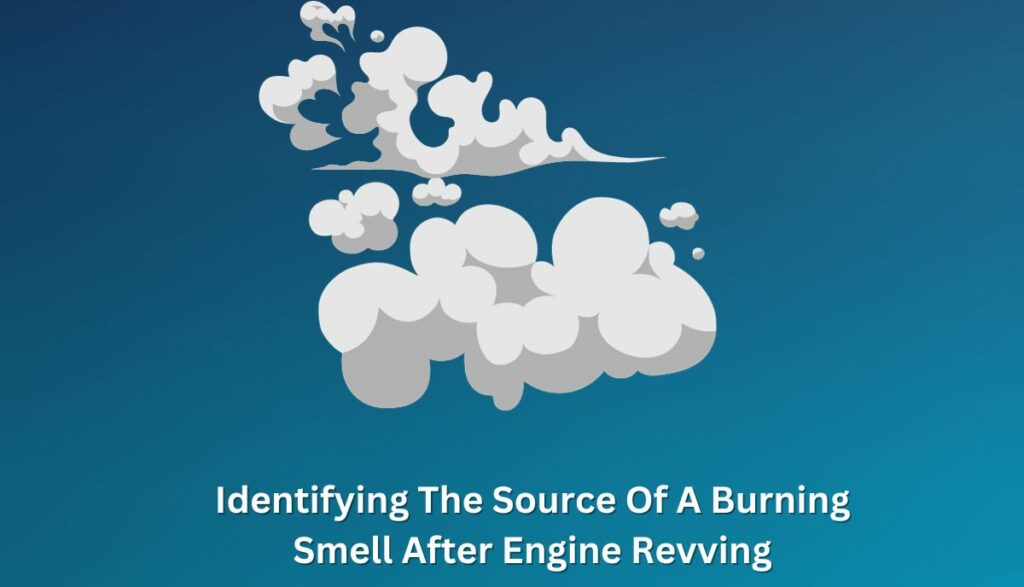
You can’t eliminate a burning smell without determining its source. A burning smell suggests that something is burning. Consider the following:
1). Rubber Burning – Check The Belt

You can’t blame the smell of burning rubber on the tires because the car doesn’t move when you rev the engine. The belt is the most probable culprit. The component is rubber, and it can touch the hot engine after slipping, producing a noticeable scent.
2). Plastic Burning- Check The Brake Pads And Rotors
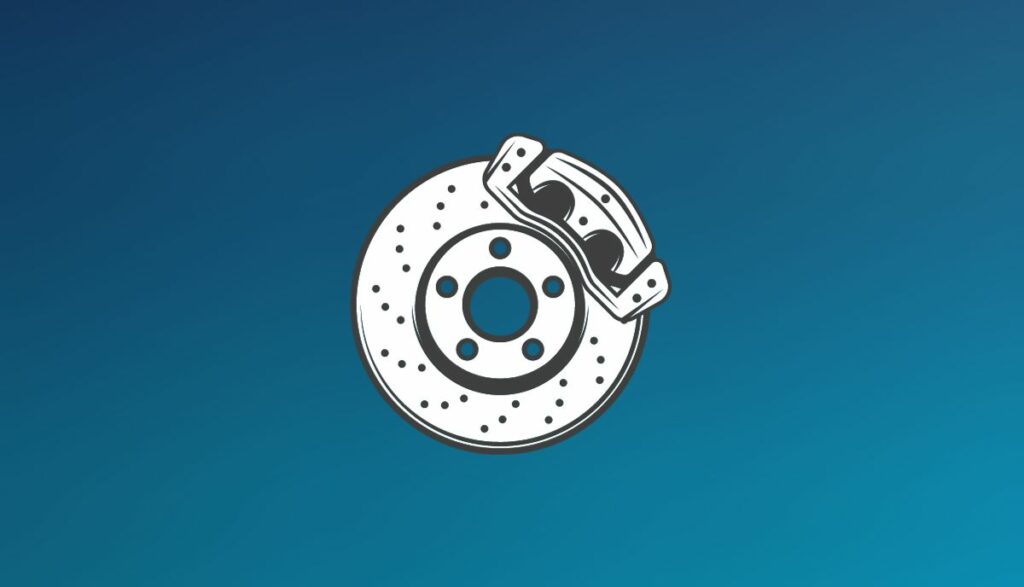
Laypeople will also associate belts with the smell of burning plastic. However, you’re better off checking the brake pads and rotors. Misaligning can increase the friction. If you ignore this problem, the pads and rotors will wear out.
If the smell of burnt plastic has persisted, talk to an expert. Let the mechanic inspect the wiring. Wires have jackets that burn due to heat, friction, and arcing. A short circuit can occur because the damaged jacket has exposed a wire’s bare conductors.
3). Oil Burning
If you know next to nothing about cars, you’re less likely to recognize the smell of burning oil. Fortunately, Repair Smith has found that cases of burning oil produce blue smoke, which ejects from the exhaust.

Blue smoke suggests that oil has entered the combustion chamber. But what if you can’t see the blue smoke, yet the smell of burning oil has persisted? You have a leak. Motor oil is touching the engine’s hot surfaces. Other signs of leaking oil include:
- A rough idling engine.
- Misfiring engine.
- Dirty, sooty spark plugs.
- Low oil levels.
If you think revving is responsible for leaking and burning oil, you’re not entirely wrong, especially since oil can leak and burn because of the following:
- Worn or clogged PVC valve.
- Defective valve seals.
- Damaged piston rings.
- Warped or loose head gasket.
- Leaking oil filter cap.
The smell of burning oil may linger for a little while, even after you plug the leak unless you wash the vehicle with commercial cleaners or a water/baking soda solution.
4). Electrical Faults
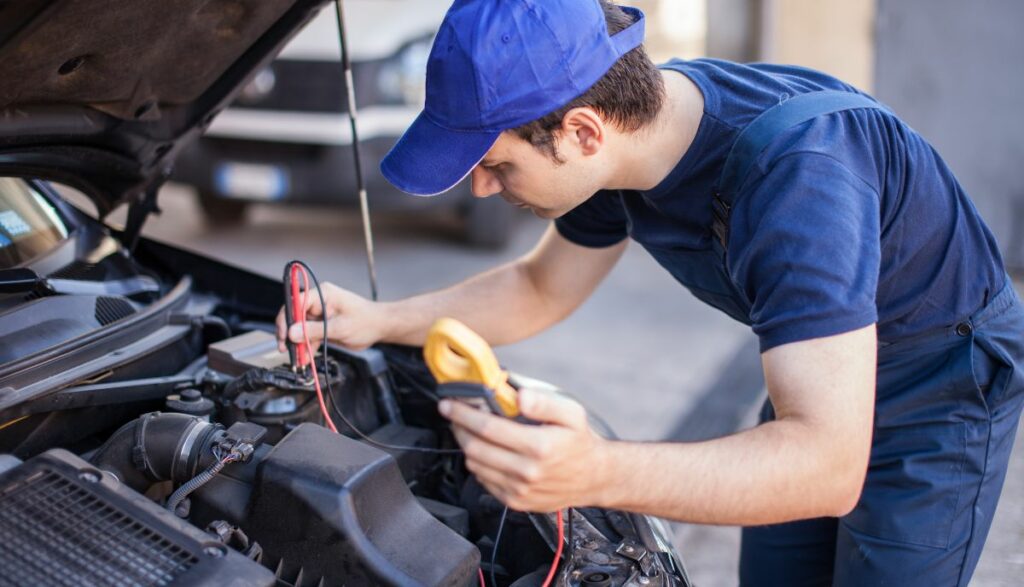
Many drivers check the battery before anything else when they notice a burning smell. This is because the battery is the vehicle’s primary power source. You may notice a burning smell because of malfunctions originating from loose connections, corroded terminals, and frayed wires.
The spark plugs are another prominent culprit. Do they look dirty? Are they covered in carbon deposits? If the battery and plugs are okay, fight the urge to tamper with the alternator.
5). Check The Catalytic Converter
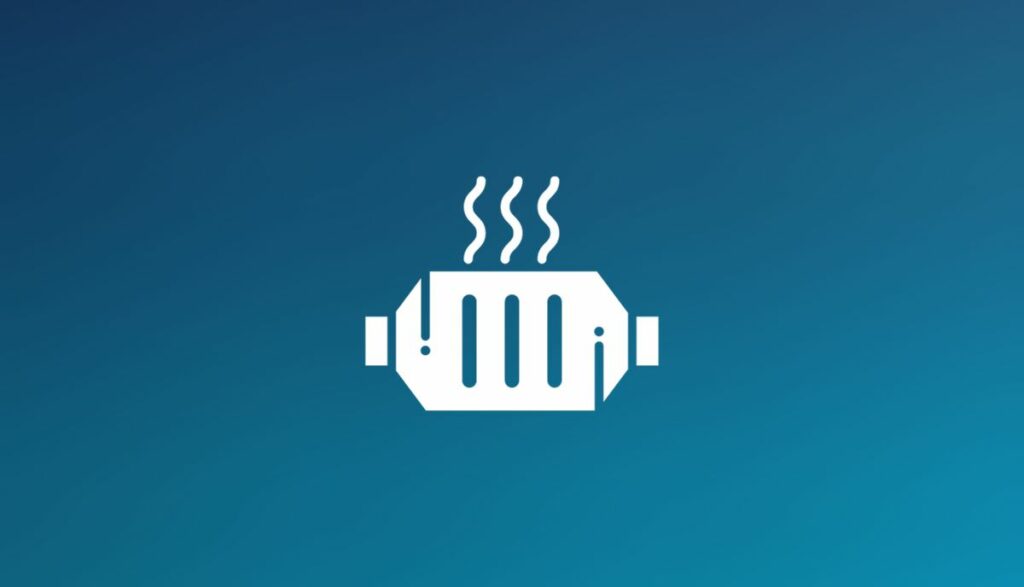
The catalytic converter reduces the car’s carbon footprint by making the engine’s waste products less harmful. Dirty and clogged converters allow the sulfur to accumulate, producing a scent to rotten eggs.
If the exhaust is corroded and leaking, the vehicle will get louder because the gases can’t reach the muffler.
6). Check The Clutch

Did you know the clutch can overheat, producing a scent similar to burning rubber? This is a sign of wear and tear. You may notice smoke billowing from beneath the vehicle. Additional symptoms of a worn clutch include slipping gears and a spongy clutch.
If you suspect the brakes, when does the burning smell appear? If you notice it while riding the brakes, the friction may even produce smoke. However, if the scent appears while you’re doing regular driving, the brakes are dragging because of seized caliper pistons.
Should I Be Worried If My Engine Produces A Burning Smell During Acceleration Or Revving?
Yes, you should be worried if your engine produces a burning smell during acceleration or revving. A burning smell can manifest because of defects in the engine. An engine’s normal operating temperature is 195 – 220 degrees F. You can cause catastrophic damage within seconds by crossing that threshold. This doesn’t mean every instance of a burning smell is dangerous. However, you shouldn’t take chances. What if the oil is leaking? Without oil, friction will kill the engine.
What if the coolant is spilling to the floor or burning in the combustion chamber? The cooling system cannot control the engine’s temperature without sufficient coolant. What if the engine is overheating?
You can’t rule out anything without performing a thorough inspection. Assume the worst until a mechanic tells you otherwise. Don’t forget that revving increases the RPM without moving the car.
You can’t rely on air from the atmosphere to cool the engine in a stationary vehicle. The fan usually kicks in and tries to cool the coolant, which, in turn, flows through the engine to pick up heat. If the fan fails, revving will cause the engine to overheat.
What Steps Should I Take If I Notice A Burning Odor After Revving My Vehicle’s Engine?
- Stop revving the engine. Turn the key in the ignition to the ‘Off’ position.
- Allow the car to sit for half an hour. This allows the engine to cool down.
- If the AC is on, turn it off. Some people turn on the heater to pull heat from the engine.
- Open the hood and check the coolant. You should also check for puddles beneath the car.
- If the coolant reservoir is low or empty, add coolant.
- If you suspect a coolant leak, call a tow truck. Let them take the car to a repair shop.
- If you can’t access a tow truck, drive to the nearest repair shop after adding coolant. You can also replenish the oil beforehand if the need arises.

